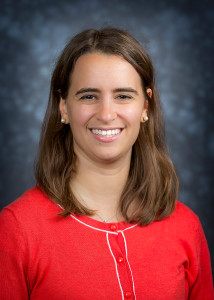Ronnie Ruse
rusevero@grinnell.edu
Professor Eliza Kempton, Physics, recently received 100,000 dollars through the Cottrell Scholar Award. The prize funds early career faculty research, teaching and education.
Administered by Research Corporation for Science Advancement, this is the first year the award has been open to undergraduate institutions.
Kempton will use the grant money to fund not only her own research on astronomy but also two new programs for improving diversity among STEM majors.
“We could always do better,” Kempton said. “When you compare the students at Grinnell in the sciences to the general population, it’s still very much not representative.”
A large part of Kempton’s research focuses on exoplanets, planets that orbit stars other than the Sun. The award money will go toward improving the computer models Kempton uses to predict what conditions on exoplanets could be like.
Kempton will also use part of the award to build programs which encourage diversity in STEM fields. While she admits the College has made progress with programs such as Grinnell Science Project (GSP), Kempton wants to do more to help students succeed.
“We have students come in every year who want to do sciences, but maybe their high school background isn’t as strong, or they feel like they’re not as strong as their peers in a class, and that can cause them to want to drop out of the sciences,” she continued.
To address this problem, Kempton plans to build on the success of GSP by developing a new peer-mentoring program. Students who participate in the GSP pre-orientation program will be paired with peer and faculty mentors who can help them throughout the year instead of just before classes begin.
Kempton will also create a skills improvement course to serve as an early intervention program for students. First year students in science courses will be given an assessment to determine their spatial thinking skills. Those who do not fare well will be invited to enroll in a one-credit course to improve their skills.
Kempton hopes that together these programs will help students succeed and make STEM classes more accessible, especially for students from traditionally underrepresented groups.




















































